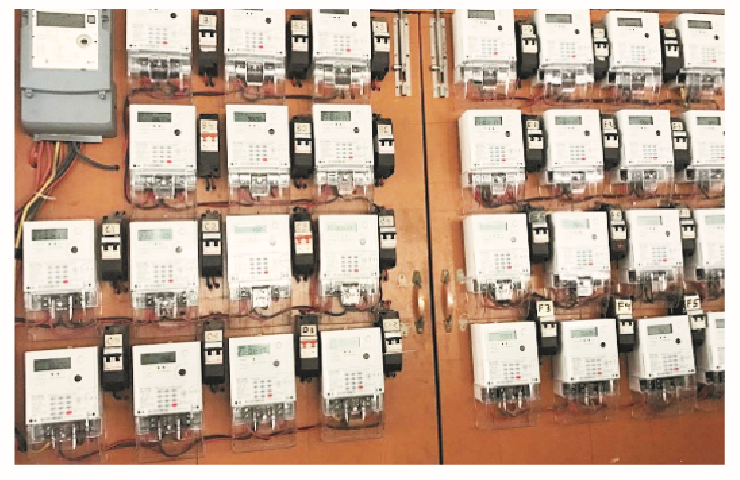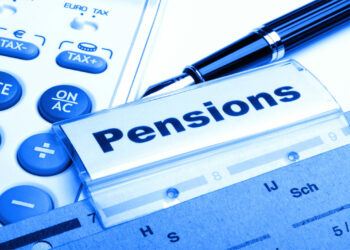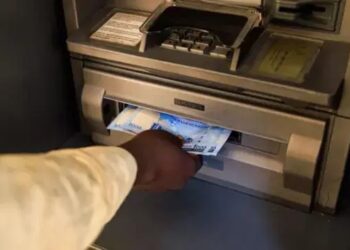The introduction of the service-based tariff (SBT) in the Nigeria Electricity Supply Industry (NESI) effective from 1st September 2020 has put increased emphasis on the need to close the metering gap in the NESI.
It is the hope of industry operators that closing of this gap will enhance efficiency of revenue collection by Distribution Companies (DisCos) and thereby facilitate meeting their obligations to other upstream market participants.
According to analysis provided by Nigeria Electricity Regulatory Commission (NERC), the current metering gap in the NESI – based on recent customer enumeration data – is over 10 million, which comprises of unmetered customers as well as customers with obsolete meters that need to be replaced.
To close this gap, President Muhammadu Buhari approved the National Mass Metering Programme(NMMP) implementation.
This Framework outlines the operational modalities of the Central Bank of Nigeria(CBN) financing support to the DisCos (Downstream) and Local Meter Manufacturers (Upstream).
Already, CBN has disbursed the sum of N47.83 billion for the procurement and installation of 856,026 electricity meters across the country under the NMMP in the scheme’s phase 0.
The NMMP is a metering initiative introduced by the federal government geared towards mass metering of Nigerians by providing loan facilities to the electricity distribution companies (DisCos) for the procurement of meters for its customers; and the local meter Manufacturers, for the manufacturing and assembling of meters.
The CBN Governor, Godwin Emefiele, at the 140th MPC meeting held on Monday January 24, 2022, and Tuesday, January 25, 2022, revealed that, there has been an improved revenue collections by the DisCos as a result of increased meter installations.
NATIONAL ECONOMY had earlier reported that the CBN has released N274.33 billion to power sector players, as part of its effort to support the sector under the Nigeria Bulk Electricity Trading Partner Assurance Facility (NBET-PAF).
The funds released to the power sector players is in addition to the N20.58 billion released to the DisCos under the Nigeria Electricity Market Stabilization Facility-Phase 2 (NEMSF-2).
The NMMP is expected to ensure that consumers are billed appropriately for the electricity they consume by installing meters free of charge in household and business premises.
The scheme which has helped increase private sector participation through investing in local meter assembly, manufacturing and installation, is also expected to assist in reducing collection losses, while at the same time, increase financial flows to achieve 100 per cent market remittance obligation of the DisCos.
It should be noted that in November 2021, the CBN reported that it had so far disbursed the sum of N47.66 billion to Electricity Distribution Companies under its mass metering scheme. The CBN Governor added that DisCos have also received another N37.6 billion for the Nigeria Electricity Market Stabilisation Facility (NEMSF-2).
Over the last few years, the CBN has adopted an aggressive policy in its intervention in the power sector.
However, as NERC issues notice of commencement of phase 1 of the NMMP, experts have suggested that the CBN meter intervention fund be channeled to indigenous meter producers to help build local capacities and create more jobs.
The president, Nigeria Consumer Protection Network, Kunle Olubiyo argued that the DisCos lacked the capacity to effectively meter customers.
Olubiyo is of the opinion that an escrow account be opened and domiciled with the CBN, to ensure effective management of customers meter payment especially under the Meter Asset Providers, MAP initiative.
He said government should henceforth discourage importation of meters since there are certified meter manufacturers in the country.
There seems to be hope for local meter producers after NERC said it will begin the second phase (Phase One) of the NMMP in August 2022.
The regulator revealed it has so far received bids from 45 local meter manufacturers to participate in the programme and was currently reviewing them.
The Phase Zero of the NMMP was flagged off on Oct. 30, 2020 with about 980,000 electricity customers installed with free prepaid meters under the first phase.
The commissioner, Finance and Management Service, NERC, Mr Nathan Shatti, said the procurement process for the second phase started in early 2022, adding that NERC was currently reviewing the capacity of the manufacturers.
He said, “Our target is to install four million meters for customers. From our experience in phase zero, we want to make sure that the manufacturers can deliver before allocation is made.
“I am sure that we will be able to finish the assessment by the end of this month and it will be finalised by the Procurement Implementation Unit.
“We are hoping that before the end of August, we will begin to see meters from our local manufacturers going to the electricity Distribution Companies and then to end-user customers.”
Meanwhile, meter manufacturing firms in the country are excited about the promise, stressing the hope it offers for them to create more jobs along the metering value-chain.
An Original Equipment Manufacturer, and power expert, Kola Balogun, said the phase one of the NMMP can create 500,000 jobs for Nigerians.
Balogun, who is the chairman, Momas Electricity Meter Manufacturing Company (MEMMCOL), spoke on the back of the government’s intention.
Minister of Power, Abubakar Aliyu, who confirmed local firms full participation in the exercise in Abuja said the new meters would be sourced from indigenous meter manufacturers.
Meanwhile, the National Bureau of Statistics (NBS) confirmed improvement in the number of metered electricity consumers by 6.8 per cent in five years.
The NBS, in its Electricity report for 2015 – 2019, said the number of metered customers increased consecutively on a year-on-year basis from 3.85 million in 2015 to 3.80 million in 2019, but the figure, however, fell to 3.51 million in 2020.
The report stated that, “In 2015, the Benin Electricity Distribution Company (BEDC) recorded the highest number, while the Ibadan Electricity Distribution Company (IBEDC) stood top between 2016 and 2019. The Abuja Electricity Distribution Company (AEDC) recorded the highest in 2020.”
The report also noted that the estimated customer records again showed year-on-year positive growth rates consecutively.
It said, “by definition, estimated customers do not own meters but are supplied electricity and billed. The number of estimated customers in 2015 was 3.85 million, and 4.19 million in 2016.
“In 2017, it rose by 4.28 per cent when 4.37 million customers were recorded. It further increased to 5.05 million in 2018 and grew by 14.08 per cent in 2019 when 5.76 million customers were recorded. Yet, this positive trend continued in 2020 with estimated customers of 6.86 million.”
Meanwhile, the DisCos have intensified metering of customers under the Meter Asset Provider MAP.
On its part the Eko Electricity Distribution Company (EKEDC), said it is metering more customers in Lagoa under the ongoing Meter Assets Provider (MAP) scheme.
The DisCo is sustaining meter deployment currntly under its Mushin Business District where it assured customers of prompt metering
The managing director, EKEDC, Dr Tinuade Sanda, gave the assurance at a customer engagement forum organised by the electricity Distribution Company on Wednesday in Lagos.
The customers at the forum were drawn from various areas including Mushin, Itire, Odi-Olowu, Tejuosho, Yaba and Papa Ajao.
Represented by Mr Joseph Esenwa, the Chief Financial Officer, EKEDC, Sanda said the engagement was continuous and aimed at fostering the relationship between the DisCo and its esteemed customers.
Also, Ikeja Electricity Distribution Company , said it has this year metered 111, 703 customers under the federal government mass metering programme.
It said 30 per cent of these customers have been found to either by-passed their meters or engaged in differed clandestine activities as non of them have made first recharge since their meters were installed therefore causing the company to lose enormous revenue.
Confirming this development spokesman of the DisCo Felix Ofulue, said 34,000 of such customers representing 30 per cent of the 111,703 customers already installed With prepaid meters are yet to make first recharge.





